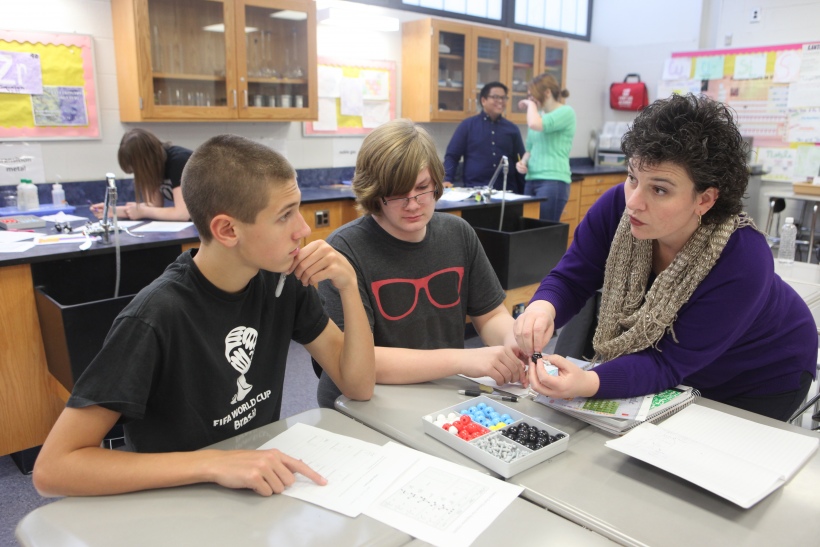News
Fellow Q&A: WW Teaching Fellow Jen Lee
WW Teaching Fellows come from many different backgrounds but are united by a single goal: to teach science, technology, engineering, and math (the STEM fields) to some of the nation’s highest-need students. But what makes these Fellows tick? What inspired them to pursue a career in the classroom? In this WW Perspectives series, we hear from WW Teaching Fellows about what drew them to the program.
Jen Lee made a career change when she entered the WWTF program at Rutgers-Camden in New Jersey in 2014. Now in her first full year of teaching chemistry, Jen gave WW Perspectives some thoughts on her experience as a Fellow.
WWP: What drew you to consider teaching as a career change?
Jen Lee: I had been staying home after my previous life as a chemist/technical writer, working occasionally as a database consultant or web designer, and taking care of my young children. I was starting to look again for a full time job, but most of the pharmaceutical jobs I was able to find were too far for me to commute.
So, in the fall of 2012, I decided to go back to school to learn more about computer programming. My plan was that I would combine my chemistry background with computer programming (which I love), and look for a job at the FAA Tech Center, or somewhere similar. I enrolled at Atlantic Cape Community College (ACCC) as a student in January 2013and about seven months in, ACCC had a situation where an adjunct professor was suddenly unable to teach a summer class. Only one day from the start of class, with no one available to teach it, they asked me to step in and teach the class. I jumped right in, and taught the class as if I had been planning to do so the whole time. The students could sense my excitement about chemistry, and it was somewhat contagious. I continued to teach as many classes as possible at ACCC while still pursuing the computer programming degree (which I finished in May 2014). I decided then that I loved teaching chemistry, and decided to pursue a master’s degree so that I could teach full time.
WWP: What’s the most rewarding part of the program so far for you?
JL: Definitely the most rewarding part of the program has been interacting with students. I have met some really terrific students who are very bright, talented, and fun. It’s incredibly fulfilling to have students develop an appreciation for how chemistry is a part of everyday things in the world around us.
Also invaluable are the new friendships that I have developed with the members of my [Teaching Fellowship] cohort. I believe we will be lifelong friends.
WWP: What would you say to someone who’s considering becoming a Woodrow Wilson Teaching Fellow?
JL: It’s a tremendous amount of work and stressful at times—but if you love teaching, and you are enthusiastic about your subject area, it’s one of the most rewarding things you could possibly ever do. I am really proud to be a Woodrow Wilson Fellow.
Interviews have been edited for length and clarity.


